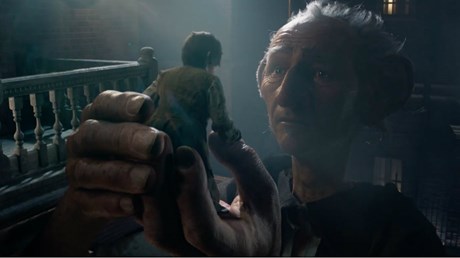Fairy tales need real dragons.

Roald Dahl weaves strange yarns for kids, mixing imagination and whimsy with a distinct strand of menace. The enduring popularity of his stories—Charlie and the Chocolate Factory was published in 1964!—depends on all those threads, menace included. What good is Matilda without the criminally neglectful parents or abusive Agatha Trunchbull? Or James and the Giant Peach without the cruel aunts? Or Charlie and the Great Glass Elevator without the Vermicious Knids?
The thing is, children love books that harbor cartoonishly-rendered dangers which nonetheless ring true with their own fears: bad adults, bad choices, bad space aliens. Dahl's books, like Lewis Carroll's Alice books, need that sinister edge to balance out their (sometimes literal) sugary content. It's what keeps it interesting—without the possibility of danger, the playful loses its punch a bit. G.K. Chesterton wrote about how fairy stories need “dragons.” And kids get this intuitively.
But sometimes adults don't. The result might look a bit like Steven Spielberg's The BFG: utterly harmless and totally sweet-natured, visually sophisticated and imaginative but narratively closer to Teletubbies than its source material—which is to say that if you're over the age of four, it's pretty dull.
In truth, that's not a total condemnation; there's surely a place in our world for children's entertainment that only appeals to children. Mark Rylance, fresh off his Oscar win, is great as the BFG, and Ruby Barnhill is a fetching Sophie, along with an all-star cast (Penelope Wilton, Jermaine Clement, Rebecca Hall, Bill Hader). The screenplay is by the late Melissa Mathison, best known for writing E.T. the Extra-Terrestrial. ...
from
http://redirect.viglink.com?u=http%3A%2F%2Ffeeds.christianitytoday.com%2F%7Er%2Fchristianitytoday%2Fctmag%2F%7E3%2FFmcV4H95ENM%2Fbfg.html&key=ddaed8f51db7bb1330a6f6de768a69b8
No comments:
Post a Comment